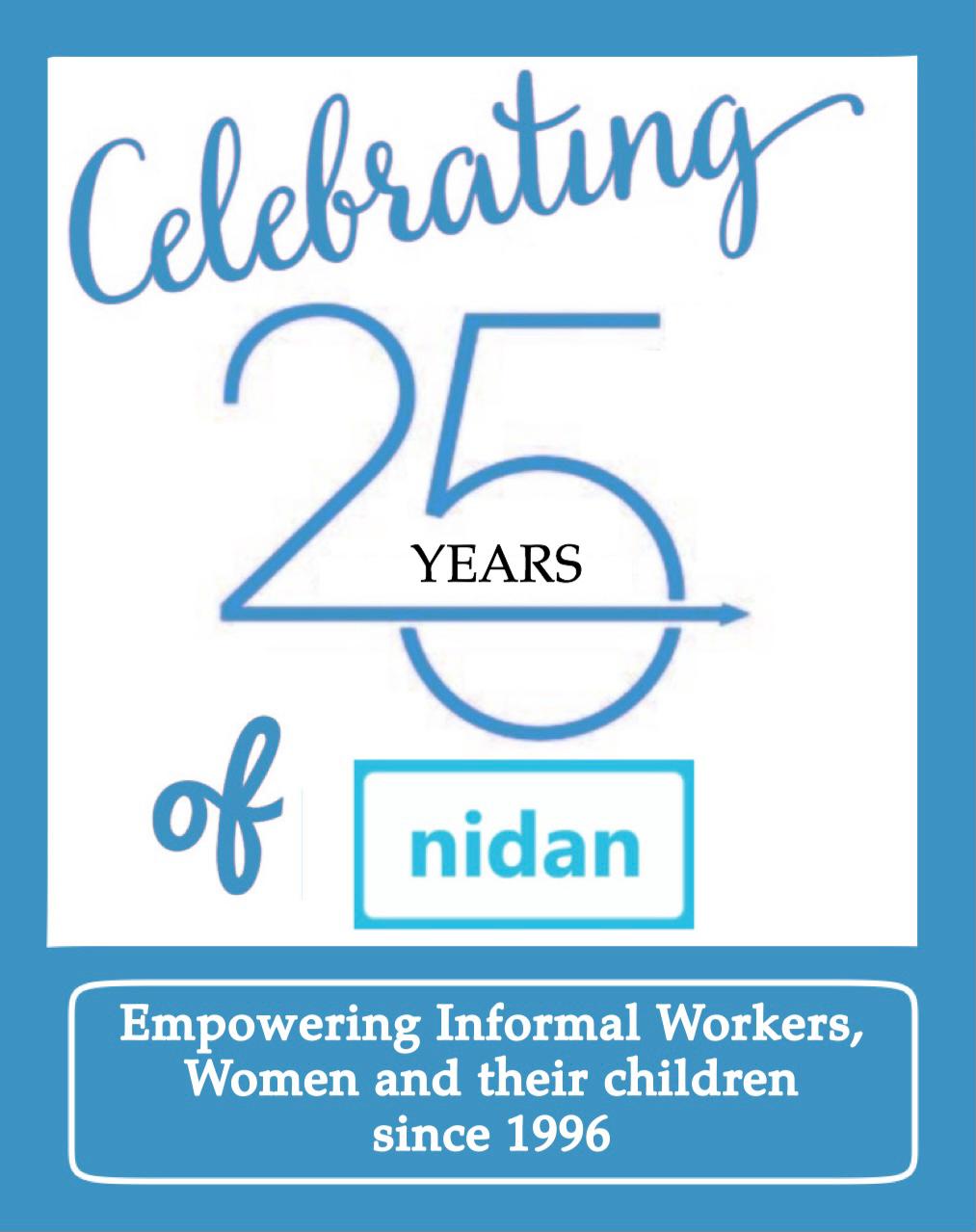
The informal economy workers, who constitute 93% of the workforce, are able to carry on their work with dignity, complimented by they and their families having access to fair opportunity, market, education, health etc.
More specifically following are achievable which Nidan strives for
- They are organized and have Govt issued identity card which is preferably portable
- They have laws governing their work and are assisted in accessing the laws
- There are policies and programs with sufficient resource allocation to develop their work and entrepreneurship
- They have access to institutionalized finance which also includes a saving mechanism
- They have social security provisions
- They are skilled in their professions
- They have access to the market for the sale of goods and services
- Their children are educated and mainstreamed.
These steps ensure that the informal workers get their due and are able to realize their full potential including the use of opportunities being created in the market. The various interventions of Nidan have the informal workers as the main stakeholders be it as members as well as leaders of the union or shareholders or directors of companies being set up by Nidan. Needless to mention, the workers see the change envisaged and when they become members or shareholders and are elected to a leadership position, they know exactly what the struggles are.
Organising: The first step in solving the problem of informal workers is organizing them in a form most suited to their need – CBOs, SHG, Community Based Saving Group (CBSG), Co-operative, Society, Company and so on
Livelihood and Self-help groups
Livelihoods and Self –help groups have been one of Nidan’s flagship programs initiated since the beginning. The program has achieved a distinct mark and continues to occupy a prominent space in Nidan’s overall portfolios.
Access to financial services
As one of the key programs Nidan visualises access to finance as an inclusive business enterprise’ to ensure easy access of the poor to credit and savings for their entrepreneurial and social empowerment.
Cooperatives and collective enterprises
In Nidan’s view “a cooperative is an autonomous, jointly held, and democratically controlled business enterprise, established by its members to meet their common economic needs. It brings financial benefit to the members through the use of services by them”. Besides the enterprise outputs such as benefits, growth and income cooperatives also deliver institutional outputs such as democracy, equality and participation.
Network and advocacy
Advocacy for the cause of the poor and the unorganized has been one of the key domains of Nidan. While the efforts have brought about substantial changes in the policy of the governments at the centre and state levels-it has also created substantial clout. The growing number of networks of the poor portrays the rising clout of the poor who can now assert their entitlements. Nidan’s strategies have been effective which it would like to continue. The vision for the sector is – “a fully galvanized unorganized sector capable of and ready to assert its entitlements from the state and others.”
Education and child right
Although education for the children of the unorganized sector started way back in 1998-1999, an innovative intervention, in education, started in 2006 emphasizing larger community involvement, active participation of the teachers in pedagogical innovation and offering the children opportunity for a constructive action and creative explorations. Interaction with the state-sponsored formal system of education is encouraged. The initiative has attracted the good attention of the community and the play way teaching-learning has added greater learning excitement. The intervention and the overall framework show good potential for replication and policy integration.
Health
As has been said earlier Nidan’s overall vision is community empowerment to be able to access and assert health services from the existing institutions. It envisages aggressive awareness building and education of the community to deal with morbidity issues from among and within the unorganized communities.
In order to achieve the objectives, NIDAN works on 3 methodologies simultaneously:
- Engaging the informal workers through different programs at the grass root level
- Enabling the informal workers for their rights through the advocacy channels
- Creating leaders through self-sustainable enterprises
The uniqueness of all the programs of Nidan is that there is always an entrepreneurial perspective along with the advocacy and grassroots-level intervention which brings the sustainability of the projects beyond the life of any Grant for that intervention.
